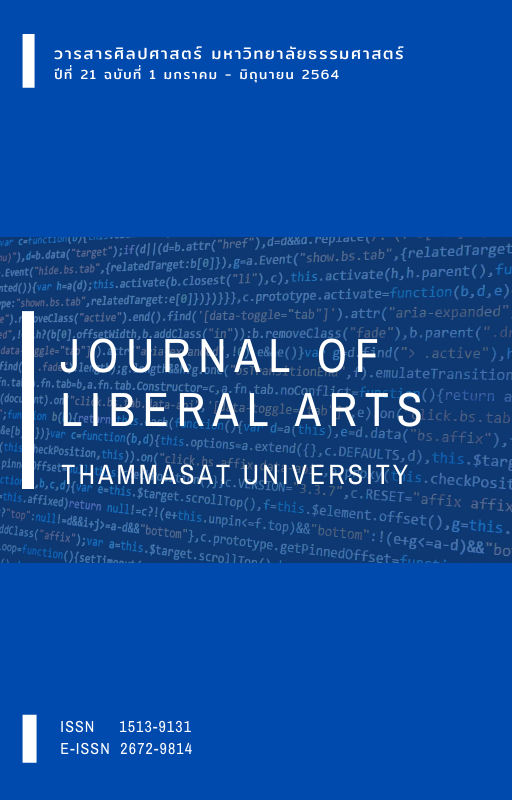Developing a Double Major Curriculum in Two Foreign Languages to Meet the Current Needs of Program Stakeholders
Main Article Content
บทคัดย่อ
A more globalized economy is seen as driving a demand for foreign language competency and a diversity of skills. Double-majoring especially in foreign languages is therefore in an upward trend as it broadens students’ linguistic and cultural perspectives as well as providing more career opportunities. This study evaluated a double major program in two foreign languages by using a quantitative method. Questionnaires were designed as research instruments for four groups of program stakeholders as the sample groups including students, graduates, graduate employers and instructors. Data analysis revealed that studying two foreign languages as a double major was perceived to be beneficial for students’ career paths and it was considered as a strength of the program, aside from the program option of providing a practicum course or an academic experience abroad. Recommendations from the stakeholders were discussed, including foreign languages of interest to be paired with English as double majors which, according to this study, Chinese was selected as the most preferred choice, and certain aspects of the curriculum management to be revised for the highest efficiency of foreign language learning and serve the needs of program stakeholders in the current global community.
Downloads
Article Details

อนุญาตภายใต้เงื่อนไข Creative Commons Attribution-NonCommercial-NoDerivatives 4.0 International License.
เอกสารอ้างอิง
Aziz, S., Mahmood, M., & Rehman, Z. (2018). Implementation of CIPP model for quality evaluation at school level: A case study. Journal of Education and Educational Development, 5(1), 189-205.
Brown, J. D. (1995). The elements of language curriculum: A systematic approach to program development. Boston: Heinle & Heinle Publishers.
Del Rossi, A. F., & Hersch, J. (2008). Double your major, double your return? Economics of Education Review, 27(4), 375-386.
Dündar, E. & Merç, A. (2017). A critical review of research on curriculum development and evaluation in ELT. European Journal of Foreign Language Teaching, 2(1), 136-168.
Eisner, E. W. (1994). The educational imagination. New York: Macmillan.
Hemelt, S. W. (2010). The college double major and subsequent earnings. Education Economics, 18(2), 167-189.
Jadhav, M., & Patankar, P. (2013). Role of Teachers’ in Curriculum Development for Teacher Education. Paper presented at the National Conference on Challenges in Teacher Education, Physical Education and Sports, Kolhapur, Maharashtra, India, 18-19 October 2013.
Kelly, A. V. (2004). Curriculum: Theory and practice (5th ed.). London: Sage.
Lau, D.C.-M. (2001). Analysing the curriculum development process: Three models. Pedagogy, Culture & Society, 9(1), 29-44.
Pitt, R., & Tepper, S. (2012). Double majors: Influences, identities, and impacts. (A Curb Center Report). Nashville, TN: Vanderbilt University.
Richards, J. C. (2001). Curriculum development in language teaching. Cambridge: Cambridge University Press.
Sahin, H. (2019). Double Major Bachelor’s Programs: What do Foreign Language Educators Think? Proceedings of IAC 2019 in Budapest, Hungary. March 15 - 16, 2019. p.22.
Stufflebeam, D. L. (2003). The CIPP model for evaluation. In D. L. Stufflebeam & T. Kellaghan (Eds.), The international handbook of educational evaluation (Chapter 2). Boston, MA: Kluwer Academic Publishers.
Stufflebeam, D. L., & Shinkfield, A. J. (2007). Evaluation theory, models, & applications. San Francisco, CA: Jossey-Bass.
Weir, C. J., & Roberts, J. (1994). Evaluation in ELT. Oxford: Blackwell Publishers.
Wiggins, G., & McTighe, J. (2005) Understanding by design (2nd ed.). Alexandria, Virginia: Association for Supervision and Curriculum Development.


